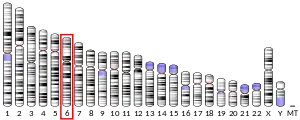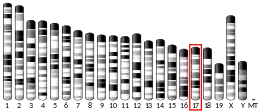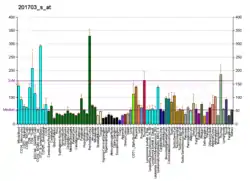| PPP1R10 | |||||||||||||||||||||||||||||||||||||||||||||||||||
|---|---|---|---|---|---|---|---|---|---|---|---|---|---|---|---|---|---|---|---|---|---|---|---|---|---|---|---|---|---|---|---|---|---|---|---|---|---|---|---|---|---|---|---|---|---|---|---|---|---|---|---|
| Identifiers | |||||||||||||||||||||||||||||||||||||||||||||||||||
| Aliases | PPP1R10, CAT53, FB19, PNUTS, PP1R10, R111, p99, protein phosphatase 1 regulatory subunit 10 | ||||||||||||||||||||||||||||||||||||||||||||||||||
| External IDs | OMIM: 603771 MGI: 1289273 HomoloGene: 2033 GeneCards: PPP1R10 | ||||||||||||||||||||||||||||||||||||||||||||||||||
| |||||||||||||||||||||||||||||||||||||||||||||||||||
| |||||||||||||||||||||||||||||||||||||||||||||||||||
| |||||||||||||||||||||||||||||||||||||||||||||||||||
| |||||||||||||||||||||||||||||||||||||||||||||||||||
| |||||||||||||||||||||||||||||||||||||||||||||||||||
| Wikidata | |||||||||||||||||||||||||||||||||||||||||||||||||||
| |||||||||||||||||||||||||||||||||||||||||||||||||||
Serine/threonine-protein phosphatase 1 regulatory subunit 10 is an enzyme that in humans is encoded by the PPP1R10 gene. This gene lies within the major histocompatibility complex class I region on chromosome 6.[5][6][7]
Function
This gene encodes a protein with similarity to a rat protein that has an inhibitory effect on protein phosphatase-1 (PP1). The rat protein localizes to the nucleus and colocalizes with chromatin at distinct phases during mitosis.[7]
References
- 1 2 3 ENSG00000238104, ENSG00000206489, ENSG00000230995, ENSG00000235291, ENSG00000231737, ENSG00000204569 GRCh38: Ensembl release 89: ENSG00000227804, ENSG00000238104, ENSG00000206489, ENSG00000230995, ENSG00000235291, ENSG00000231737, ENSG00000204569 - Ensembl, May 2017
- 1 2 3 GRCm38: Ensembl release 89: ENSMUSG00000039220 - Ensembl, May 2017
- ↑ "Human PubMed Reference:". National Center for Biotechnology Information, U.S. National Library of Medicine.
- ↑ "Mouse PubMed Reference:". National Center for Biotechnology Information, U.S. National Library of Medicine.
- ↑ Allen PB, Kwon YG, Nairn AC, Greengard P (Mar 1998). "Isolation and characterization of PNUTS, a putative protein phosphatase 1 nuclear targeting subunit". J Biol Chem. 273 (7): 4089–95. doi:10.1074/jbc.273.7.4089. PMID 9461602.
- ↑ Totaro A, Grifa A, Carella M, Rommens JM, Valentino MA, Roetto A, Zelante L, Gasparini P (Nov 1998). "Cloning of a new gene (FB19) within HLA class I region". Biochem Biophys Res Commun. 250 (3): 555–7. doi:10.1006/bbrc.1998.9354. PMID 9784381.
- 1 2 "Entrez Gene: PPP1R10 protein phosphatase 1, regulatory (inhibitor) subunit 10".
Further reading
- Totaro A, Rommens JM, Grifa A, et al. (1997). "Hereditary hemochromatosis: generation of a transcription map within a refined and extended map of the HLA class I region". Genomics. 31 (3): 319–26. doi:10.1006/geno.1996.0054. PMID 8838313.
- Kreivi JP, Trinkle-Mulcahy L, Lyon CE, et al. (1998). "Purification and characterisation of p99, a nuclear modulator of protein phosphatase 1 activity". FEBS Lett. 420 (1): 57–62. doi:10.1016/S0014-5793(97)01485-3. PMID 9450550. S2CID 23856958.
- Strausberg RL, Feingold EA, Grouse LH, et al. (2003). "Generation and initial analysis of more than 15,000 full-length human and mouse cDNA sequences". Proc. Natl. Acad. Sci. U.S.A. 99 (26): 16899–903. Bibcode:2002PNAS...9916899M. doi:10.1073/pnas.242603899. PMC 139241. PMID 12477932.
- Kim YM, Watanabe T, Allen PB, et al. (2003). "PNUTS, a protein phosphatase 1 (PP1) nuclear targeting subunit. Characterization of its PP1- and RNA-binding domains and regulation by phosphorylation". J. Biol. Chem. 278 (16): 13819–28. doi:10.1074/jbc.M209621200. PMID 12574161.
- Reeder JE, Sowden MP, Messing EM, et al. (2003). "Inducible expression of catalytically active type 1 serine/threonine protein phosphatase in a human carcinoma cell line". Cancer Cell International. 3 (1): 12. doi:10.1186/1475-2867-3-12. PMC 183861. PMID 12914669.
- Mungall AJ, Palmer SA, Sims SK, et al. (2003). "The DNA sequence and analysis of human chromosome 6". Nature. 425 (6960): 805–11. doi:10.1038/nature02055. PMID 14574404.
- Colland F, Jacq X, Trouplin V, et al. (2004). "Functional proteomics mapping of a human signaling pathway". Genome Res. 14 (7): 1324–32. doi:10.1101/gr.2334104. PMC 442148. PMID 15231748.
- Raha-Chowdhury R, Andrews SR, Gruen JR (2005). "CAT 53: a protein phosphatase 1 nuclear targeting subunit encoded in the MHC Class I region strongly expressed in regions of the brain involved in memory, learning, and Alzheimer's disease". Brain Res. Mol. Brain Res. 138 (1): 70–83. doi:10.1016/j.molbrainres.2005.04.001. PMID 15894402.
- Landsverk HB, Kirkhus M, Bollen M, et al. (2006). "PNUTS enhances in vitro chromosome decondensation in a PP1-dependent manner". Biochem. J. 390 (Pt 3): 709–17. doi:10.1042/BJ20050678. PMC 1199665. PMID 15907195.
- Beausoleil SA, Villén J, Gerber SA, et al. (2006). "A probability-based approach for high-throughput protein phosphorylation analysis and site localization". Nat. Biotechnol. 24 (10): 1285–92. doi:10.1038/nbt1240. PMID 16964243. S2CID 14294292.
- Olsen JV, Blagoev B, Gnad F, et al. (2006). "Global, in vivo, and site-specific phosphorylation dynamics in signaling networks". Cell. 127 (3): 635–48. doi:10.1016/j.cell.2006.09.026. PMID 17081983. S2CID 7827573.
- Lee SJ, Lim CJ, Min JK, et al. (2007). "Protein phosphatase 1 nuclear targeting subunit is a hypoxia inducible gene: its role in post-translational modification of p53 and MDM2". Cell Death Differ. 14 (6): 1106–16. doi:10.1038/sj.cdd.4402111. PMID 17318220.
This article is issued from Wikipedia. The text is licensed under Creative Commons - Attribution - Sharealike. Additional terms may apply for the media files.





